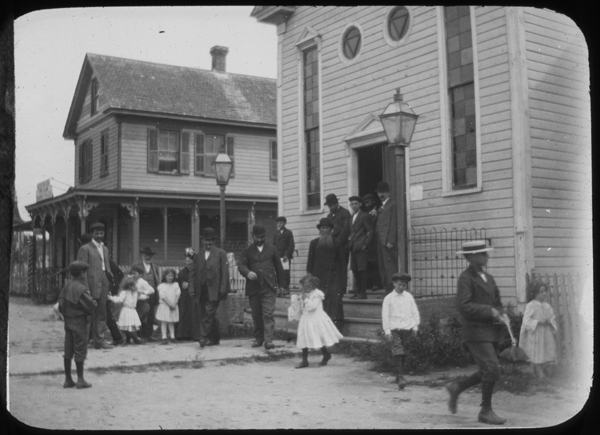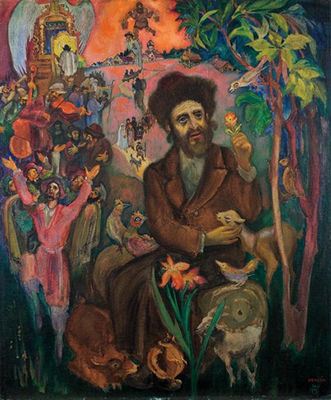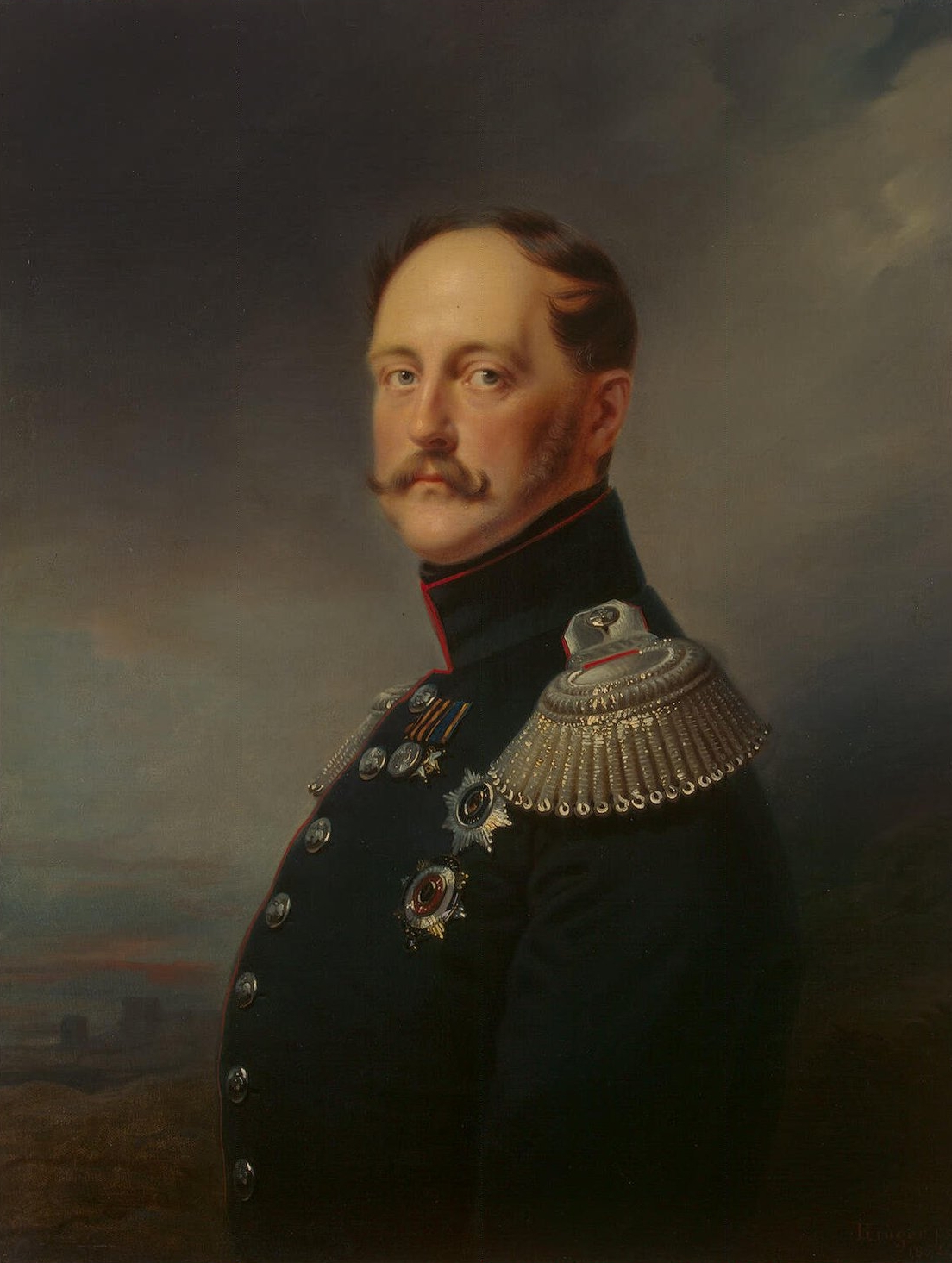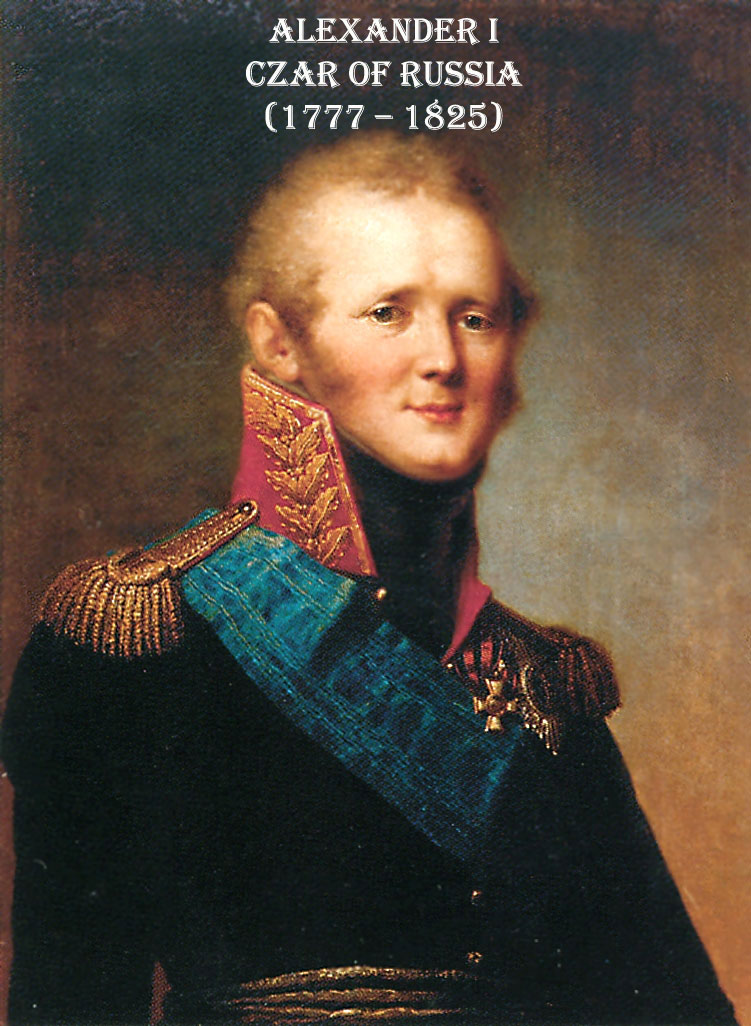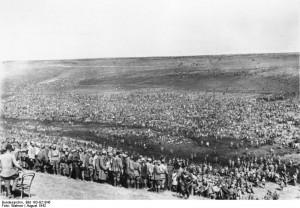
Estimates vary, but there were approximately 250,000 Jews in the concentration camps when World War II ended. Many liberated survivors had no choice but to remain in the very camps where they were imprisoned. Instead of concentration camps they were now Displaced Persons (DP) camps and they were displaced persons.
Where was the world going to put them?
Most did not want to stay in Europe. About 25,000 Jews tried to return to Poland, because they were ideologically close to communism and the new Poland had a strong communist, Stalinist regime in place. However, when they came back to Poland they came back to pogroms. Literal pogroms. Tens of Jews, if not hundreds, were killed.
Jews who found themselves behind the Iron Curtain, especially in Russia, now found themselves under a completely different type of oppression – an oppression in many ways as dark as German oppression. To Stalin anyone who had contact with the virus called “the West” was sent to Siberia. Even Russian soldiers who fought for Mother Russia, but had the misfortune of being captured by the Germans – and who somehow survived that misfortune (only 20-40% of Russian prisoners survived; 3.3 million died) — were sent to Siberia by Stalin.
The Gulag Archipelago by Aleksandr Solzhenitsyn describes it. In Stalin’s eyes they were contaminated and had no place in Russian society. Imagine the hell these people experienced: they fought for Soviet Russia, were prisoners of the Nazis for a year to four years, and then they came back home only to be sent straight to the labor camps of frozen Siberia. Many Jews followed this path.
I knew a Rabbi Greenwald form Toronto, an enormous Torah scholar, who at one point ended up in Siberia after the war. A Hungarian Jew, he had been forcibly conscripted into a work battalion of the Romanian army, which was allied with the Nazis. He survived a year-and-a-half in that battalion until the Russians captured them, and sent them all to Siberia.
Between the malnutrition and the winter cold, people were falling like flies. At least when they were fighting they had hope of the war ending. Now, there was no end. People were broken in their spirit even before their bodies.
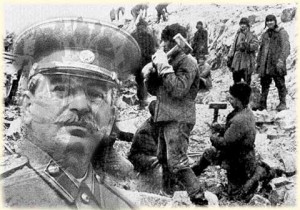
The commandant of the camp was a Jew. One day, he called him in and told him that he could tell that he was innocent; he did not belong there. But there was only one possible way to get out, he told him. “Write a note and address it Lazar Kaganovich, telling him how you were forced into the labor battalion, etc.”
Kaganovich was Stalin’s brother-in-law, a member of the politburo – and was Jewish too! (He was also a kohen!) The commandant told him that he would make sure the note got to Kaganovich.
The penalty for writing such a note was instant execution. Many times guards convinced prisoners to write a note – and then shot them for writing the note. Despite the danger, Rabbi Greenwald wrote the note.
About four months later an official car drove into the camp with a high-ranking officer. They lined up all the prisoners and then announced that prisoner Greenwald was there by mistake. However, the official said, he would not free Greenwald until he told him who smuggled the note out of the camp.
For an entire week he made believe he didn’t know how the note got out. Finally, they put him on a train toward the Romanian border, where they pushed him off as the train moved. But he survived and made it all the way to Canada.
He was one of the lucky few that got out.



